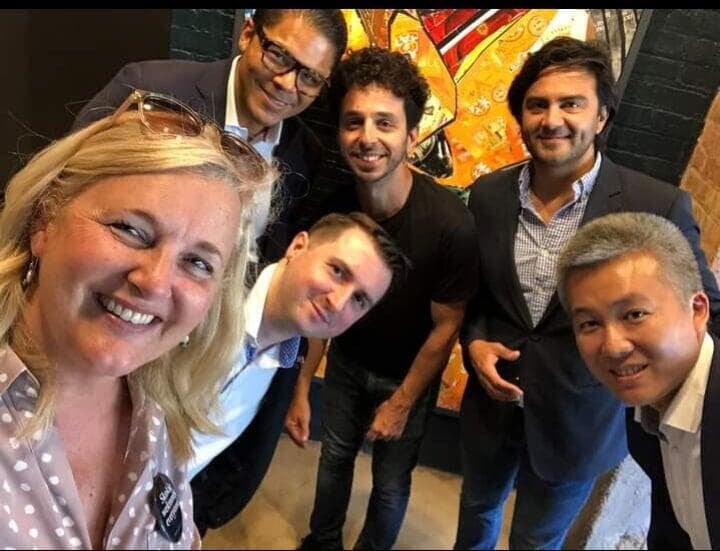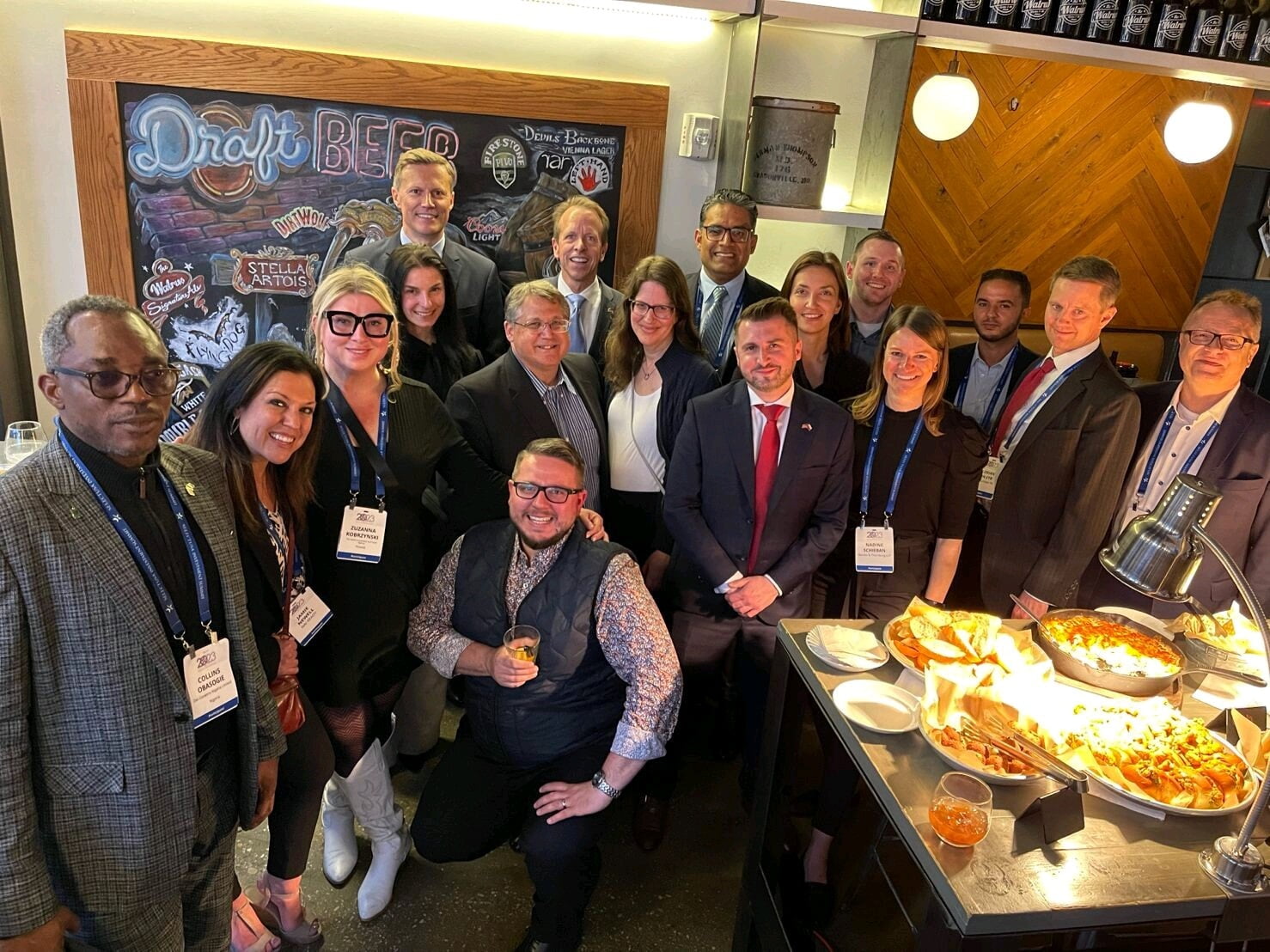
Foreign Direct Investment (FDI) plays a vital role in driving global economic growth, fostering innovation, and generating employment opportunities. However, companies seeking to expand internationally encounter challenges including regulatory obstacles and cultural differences. This blog highlights the primary challenges associated with FDI and offers a strategic roadmap to assist businesses in navigating these complexities while maximizing their investment potential and mitigating risks.
As Michael Edgar, SelectGlobal LLC’s Founder and CEO quote’“Foreign Direct Investment (FDI) is currently navigating a notable inflection point. In the aftermath of COVID-19, we are witnessing a recalibration of the international trade model that has persisted since the conclusion of World War II and the Bretton Woods Era. This shift has led the United States to adopt tendencies of both nationalism and isolationism.
This trend is unprecedented. Discussions regarding the shifts towards re-shoring have been ongoing since the summer of 2020. Declining demographic profiles and diminishing market sentiment have been developing since early 2012. As a result of these changes, the outlook for where markets and capital will be deployed has transformed."
This trend is unprecedented. Discussions regarding the shifts towards re-shoring have been ongoing since the summer of 2020. Declining demographic profiles and diminishing market sentiment have been developing since early 2012. As a result of these changes, the outlook for where markets and capital will be deployed has transformed."

Understanding Foreign Direct Investment
Foreign Direct Investment (FDI) pertains to investments made by companies or individuals in business ventures within a foreign nation, which may include establishing subsidiaries or acquiring stakes. Unlike portfolio investments, FDI affords greater control and management over the invested assets. It presents advantages for both investors and host countries by enabling access to new markets, facilitating technology transfer, and promoting economic growth. Nevertheless, FDI also presents challenges, including legal barriers, political instability, and cultural differences.

Key Challenges of Foreign Direct Investment
1. Regulatory and Legal Complexities
Navigating the complexities of foreign direct investment (FDI) presents considerable challenges due to the diverse regulations that vary across countries. Host nations frequently implement intricate legal frameworks that may impose restrictions on foreign ownership, as well as specific labor and taxation laws. Regulatory limitations are notably prominent in sectors such as telecommunications and energy, even within developed markets. Foreign investors must possess a comprehensive understanding of local laws and ensure compliance to mitigate the risk of costly disputes or asset expropriation, often necessitating collaboration with local legal experts during market entry. Michael also mentioned that, "Visual Capitalist has effectively developed an infographic based on the Boston Consulting Group’s (BCG) Global Wealth Report 2024, which illustrates Global Wealth by Region. The report, titled "Mapped: Global Wealth by Region (2023-2028F)" (visualcapitalist.com), defines "financial wealth" as encompassing cash and deposits, bonds, public and private equities, investment funds, life insurance, and pensions, as well as cross-border wealth. Total Net Wealth, which is the sum of financial wealth and real assets minus liabilities, is projected to increase by $152 trillion USD by 2028.
Smaller original equipment manufacturers (OEMs) servicing these industries will need to be strategically located within 500 miles of these installations to facilitate just-in-time delivery and just-in-case warehousing." Michael Edgar noted.
2. Political and Economic Risks
Political stability is crucial for attracting foreign direct investment (FDI), as unstable environments deter potential investors. A report from UNCTAD highlights a 12% decline in global FDI flows in regions marked by political instability. Additionally, economic factors such as inflation and currency volatility play a significant role in shaping investment outcomes, emphasizing the need for thorough risk assessments to facilitate informed decision-making. Related to this, Michael Edgar also mentioned, “In this election year, we have created two strategic envelopes. While the specific tactics may vary, the overarching direction has been established. We anticipate a continued decoupling from China and the implementation of new trade rules aimed at strengthening the domestic supply chain and promoting US ownership.”
3. Cultural Barriers and Workforce Integration
Cultural differences can present substantial challenges to the success of foreign direct investment (FDI), particularly in the management of international teams and the integration of local workforces. Research indicates that 70% of international ventures fail as a result of cultural misunderstandings. To mitigate these risks, organizations should prioritize cross-cultural training and ensure effective communication between headquarters and subsidiaries. A thorough understanding and respect for local customs can enhance trust and cooperation with local partners.
To give us a bit of data, Michael Edgar mentioned that, "The North American market is projected to increase total net wealth by $58 trillion, reaching $227 trillion USD. This growth has led to a surge of clients seeking to enter the U.S. market for capital access and customer opportunities. Data indicates that this trend will persist over the next five years. Notable opportunities outside the USA include Southeast Asia, particularly a resurgent India, which is anticipated to achieve a 6% compound annual growth rate (CAGR), expanding to $209 trillion. Additionally, the smaller total net wealth sectors in the Middle East and Africa ($31 trillion) and Latin America ($26 trillion) are projected to grow at an 8% CAGR. In contrast, Western Europe is expected to experience the slowest growth at 2% CAGR, while Eastern Europe and Central Asia are projected to grow at 4% CAGR."
4. Environmental and Social Governance (ESG) Considerations
Sustainability and corporate responsibility are becoming increasingly vital in global business, as foreign direct investment (FDI) decisions are heavily influenced by environmental, social, and governance (ESG) factors. Host countries may enforce stricter regulations, requiring investors to align with these standards to mitigate reputational risks and operational constraints. The World Bank underscores that compliance with ESG criteria is crucial for succeeding in markets that prioritize environmental and social objectives.
"The United States is actively working to revitalize its manufacturing sector, particularly advanced manufacturing. Incentives will be closely linked to the creation of local jobs and the emphasis on domestic content. In this context, renewable energy has emerged as a leading sector. Additionally, tethered energy is essential for U.S.-based data centers that train large language models (LLMs) for artificial intelligence. The interrelated impacts on both sectors underscore the urgent need for enhanced infrastructure across various electrical grids, as well as for microchips and processors."as Michael Edgar quotes.

Strategies for Navigating Foreign Direct Investment Complexities
To effectively tackle the challenges related to Foreign Direct Investment (FDI), companies should conduct thorough market research to gain a comprehensive understanding of the host country's environment. Engaging local expertise can yield valuable insights into regulations and business practices, while the implementation of robust risk mitigation strategies—such as diversifying investments and utilizing financial safeguards—is crucial. Additionally, fostering flexibility within strategies is essential for adapting to changing market conditions. Finally, prioritizing Corporate Social Responsibility (CSR) can enhance a company's reputation and align it with global sustainability trends.
Conclusion:
Navigating the complexities of Foreign Direct Investment (FDI) necessitates a comprehensive approach that takes into account legal, political, economic, cultural, and ESG factors. While the challenges are considerable, the potential rewards for businesses pursuing global expansion are substantial. By conducting thorough research, leveraging local expertise, and implementing robust risk mitigation strategies, companies can attain success in the international marketplace.
References:
OECD Regulatory Restrictions in Key Sectors: www.oecd.org/fdi
UNCTAD World Investment Report 2022: www.unctad.org/en/PublicationsLibrary/wir2022
Harvard Business Review on Cross-Cultural Failures: www.hbr.org
The World Bank on ESG and FDI: www.worldbank.org
World Bank Ease of Doing Business Index: www.doingbusiness.org





